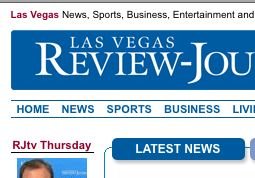Does Posting Your Work Online Give Others the Right to Copy?

In 2006 I wrote an article entitled “Why RSS Scraping Isn’t OK” that laid out many of the arguments provided in favor of RSS scraping and republishing and laid out counter-arguments to them.
By in large, in the years that followed that article it seems that Internet has agreed. RSS scraping is no longer a hot topic on the Web but it is also not an accepted practice by any stretch. When sites are accused of scraping they are usually shouted down and are viewed as spam bloggers.
However, a ruling from earlier in 2006 may be coming back to raise new questions about how implied licenses affect the Web. The Field v. Google case, which dealt with Google’s cache, took a look at the implied license question from a different perspective and came up with some interesting answers, namely that Field, a writer, had granted Google an implied license to cache and display the cache of his content by posting it on the Web and not taking additional steps to block it.
That ruling is now being revisited and reapplied in another case, this one dealing with the controversial copyright litigator Righthaven and the new application may impact all creators on the Web and make nearly all content copying legal.
Though I am no fan of Righthaven and their practices, this particular theory against them is very dangerous and well worth analyzing closely.
The Righthaven Case

Righthaven is a company set up by the shell corporation for the Las Vegas Reivew-Journal (LVRJ) to enforce the copyrights of the paper. The group purchases rights from the paper and then sues bloggers and other sites that have republished stories from the paper, demanding upwards of $75,000 for a settlement (though the cases usually settle for much less).
Their practice is controversial for several reasons including that they do not file takedown notices or cease and desist notices first, meaning that the suits usually come without warning, Also, the company has targeted sites with many mitigating factors including ones that only reposted small portions of the original content, were the subjects for some of the articles and, in some cases, sites who did not upload the work themselves but had them uploaded by users. The latter raises significant safe harbor issues.
One of the publishers sued was Jan Klerks, who runs the forum SkyScraperCity.com. A user at the forum posted a LVRJ article and Righthaven has sued Klerks for copyright infringement.
Initially, the court issued a default judgment against Klerks when she failed to respond to the suit but Klerks is now requesting the suit be vacated (PDF) on multiple grounds, including the following:
- Fair Use: Claiming that the copying was a fair use.
- De Minimis Copying: Meaning the copying was so small and technical as to be non-infringing.
- Implied License: Claiming that the LVRJ, by their actions, granted an implied license for the reuse of the content.
It is the last argument that has gotten the most interest and is the one I’m focusing on today In the filing, Klerks argued that several actions the LVRJ took essentially gave her user (or anyone else) permission to copy. Those actions included:
- Using Sharing Services: The LVRJ uses social media buttons and other tools to enable users to share links to stories.
- Not Disabling Copy/Right Click: The site enabled users to right-click and otherwise copy content, not taking any steps to block it.
- Posting the Work For Free and Making Available in Google: The article in question was still available for free on the LVRJ site and is searchable by Google.
Interestingly, the motion does NOT mention several very clear potential arguments that likely apply including DMCA Safe Harbor protection, which Klerks likely qualifies for as the host of the forum, or jurisdictional issues as Klerks is from Illinois and was sued in Nevada.
Still, the implied license argument has drawn a lot of attention from all over the Web and rightfully so. To support that argument, Klerks cites the Field v. Google case, revisiting the case in a very different light.
The Field v. Google Case

In the Field v. Google case, the court ruled that Google, among other things, had an implied license to store and display caches of Field’s content for several reasons, the biggest being that Fields was aware of the robots.txt standard for blocking archiving and the potential use of meta tags but failed to do either, therefore, according to the ruling:
Thus, with knowledge of how Google would use the copyrighted works he placed on those pages, and with knowledge that he could prevent such use, Field instead made a conscious decision to permit it. His conduct is reasonably interpreted as the grant of a license to Google for that use.
This ruling was somewhat unusual in that copyright law normally does not place any requirements on copyright holders to try to stop copying before a copy can be considered an infringement. However, the court also found in this case that the cached copy was transformative enough to be considered a fair use and that, even without this license, Google’s use would not be an infringement.
(Note: More about the verdict from the EFF)
Still, it is easy to see why Klerks would cite this case in her argument on implied license but the implications if this argument is successful could be very severe for anyone who publishes content online.
Analysis of the Argument
Personally, I don’t think Klerks’ implied license argument is going to take flight. Even though there are some similarities between her case and the Field case, there are several critical differences when it comes to the issue of direct infringement:
- No Industry Standard: First, there is no industry standard akin to robots.txt for blocking human copying. No right-click scripts and other anti-copy protections are nowhere near commonplace and they disable other, useful features a webmaster may wish to enable. Comparing the two is a tremendous stretch.
- Copier is not Passive: In the Fields case, the plaintiff did not object to the initial copying and the cached version is an automated process initiated by a visitor at Google, Google is passive in the process. Reposting a work on the Web is not a passive process that the person doing the copying has to initiate.
- Weaker Fair Use Argument: Though the fair use argument should be weighed separately from the implied license/direct infringement issue, such copying and pasting is far less transformative than Google cache and, generally, is capable of replacing the function of the original. This, inevitably, is weighed into the ruling to at least some degree.
Also, Klerks’ argument regarding the sharing buttons seems a bit of a stretch as well. These buttons enable the sharing of links and not the whole content and other buttons, such as the email button are not for posting the content on another site, but rather, sending via a private means of communication.
In short, many legal scholars feel that the Field case was a bit of a stretch on the implied license issue and this argument seems to take the Field ruling and stretch it even farther, likely past the breaking point.
However, the honest answer is that one does not know what the court will decide and, as with fair use issues, courts are notoriously erratic. Attorney Eric Goldman said it best when he indicated that there is no way of knowing if an implied license exists here and, if one does, what it covers.
In short, even if an implied license does exist, it may not go as far as Klerks wants or needs it to. Instead of covering republishing on the Web, it may only cover sending to one or two people or posting to a some other limited use.
Until the court rules, we simply will not know.
In the meantime, we are faced with the possibility, no matter how remote, that courts could rule that posting a work on the Web is the same as giving an implied license to copy and republish it freely, something that could all but eliminate copyright protection for many Web publishers.
Take Action Now
Even if the argument is not likely to succeed, it has opened up a Pandora’s box and created uncertainty that has to be addressed. In 2006, when dealing with RSS scraping, I encouraged people to not take any chance and license their feed using a Creative Commons or other applicable license.
This advice now stands, more than ever, for content on the Web too.
The reason is quite simple, any implied license is trumped by an actual license. This is because implied licenses, by their very nature, are only for cases where an actual license has not been granted or doesn’t exist. So, even if the court does rule that publishing grants a broad implied license, any actual license would have to be followed first.
This is a big part of why it is so important to license your works correctly. Not only does it prevent misunderstandings, but it also prevents you from accidentally giving away more rights than you intended via an implied license.
In short it is best to decide your license for yourself and not let the court choose and hope it picks the right one.
Bottom Line
If you publish content on the Web, this affects you. It is that simple. As I said before, I am no fan of Righthaven or their tactics but this is an argument against them that could have very far-reaching and very negative consequences for almost everyone who posts content online.
Granted, the odds of the argument succeeding (at least to the extent Klerks needs it to) seems very slim but it does add another reason for webmasters to pay close attention to their licensing practices and work to make them clear.
In short, if you’ve been relaxed about licensing your content, now is the time to change that. It’s better to take such action now than possibly get caught off guard by this, or any other, ruling that affects your rights.
Want to Reuse or Republish this Content?
If you want to feature this article in your site, classroom or elsewhere, just let us know! We usually grant permission within 24 hours.
